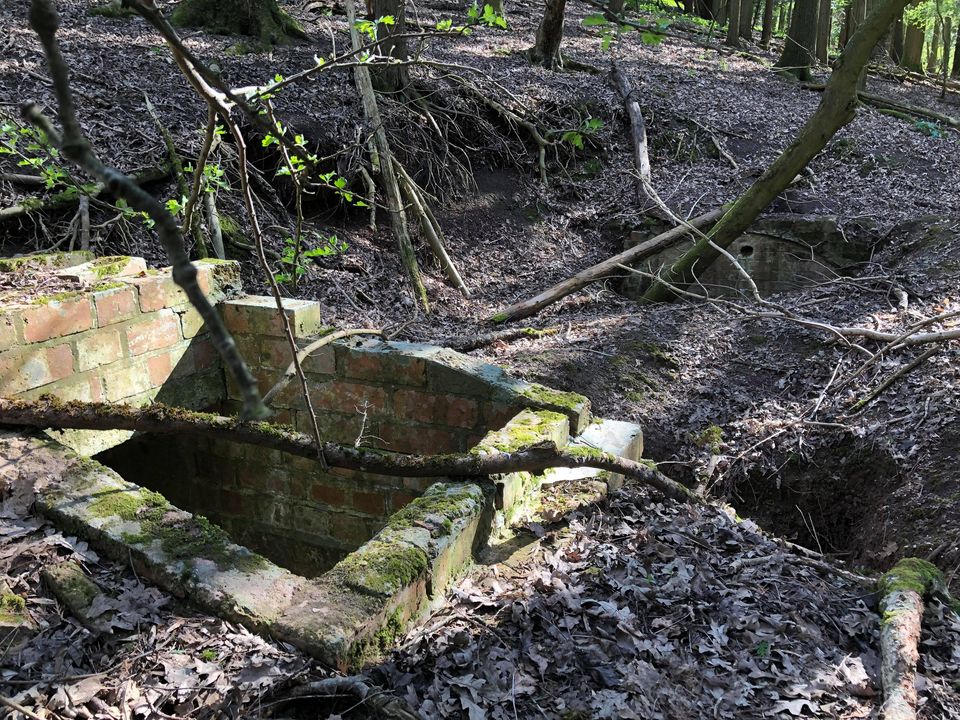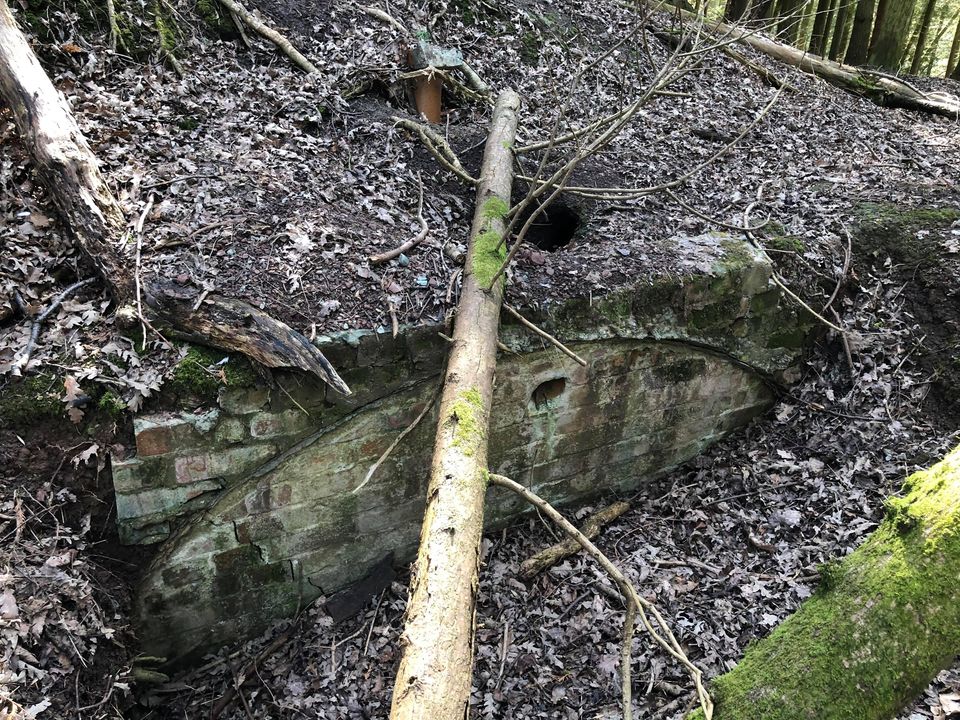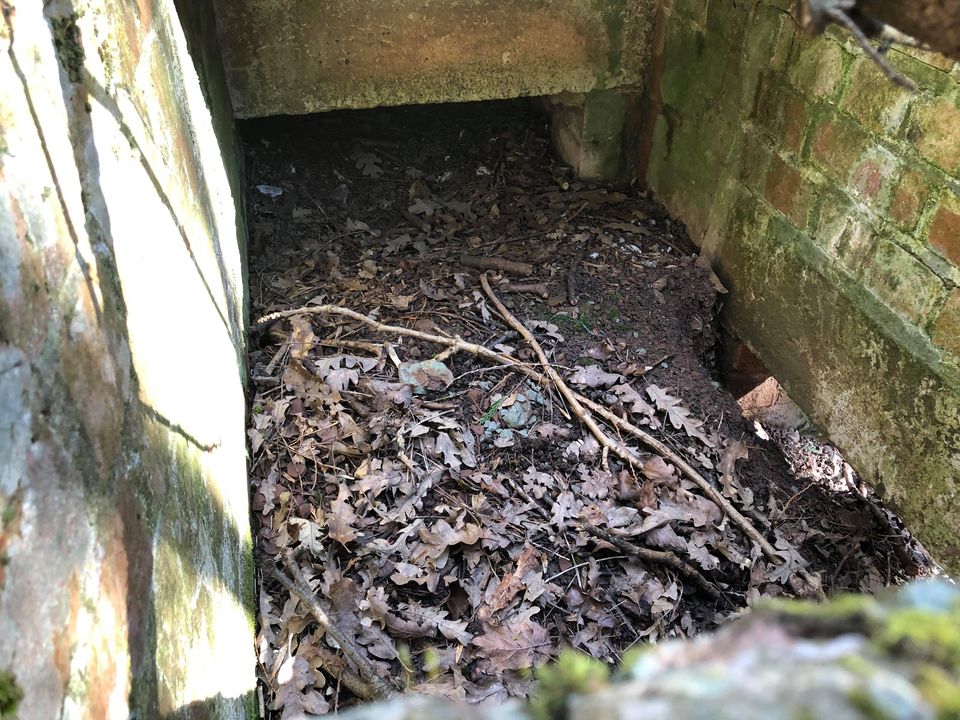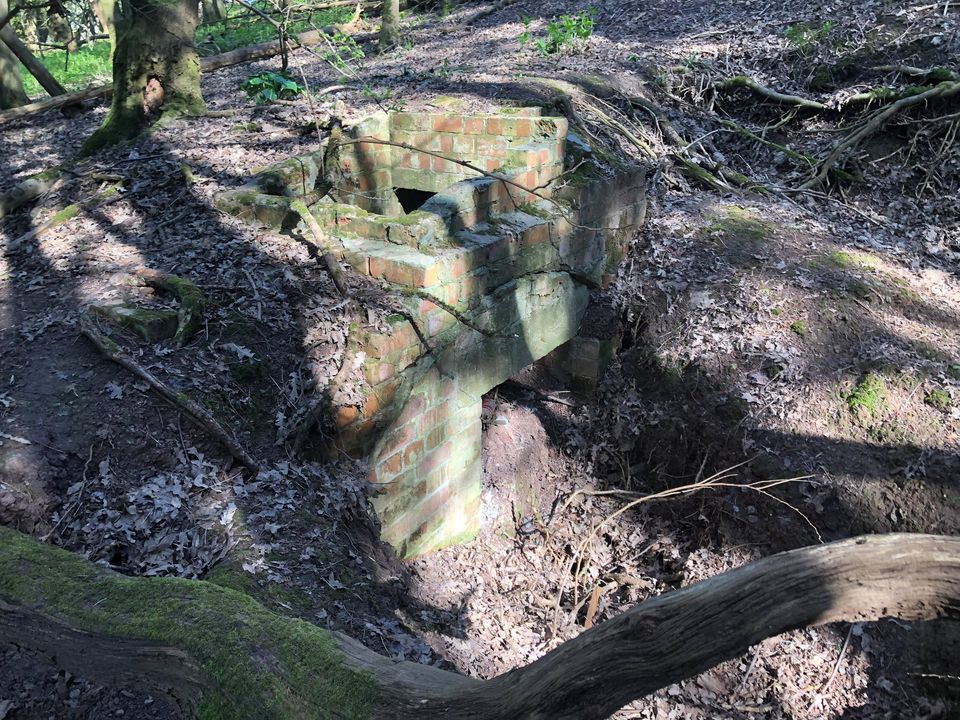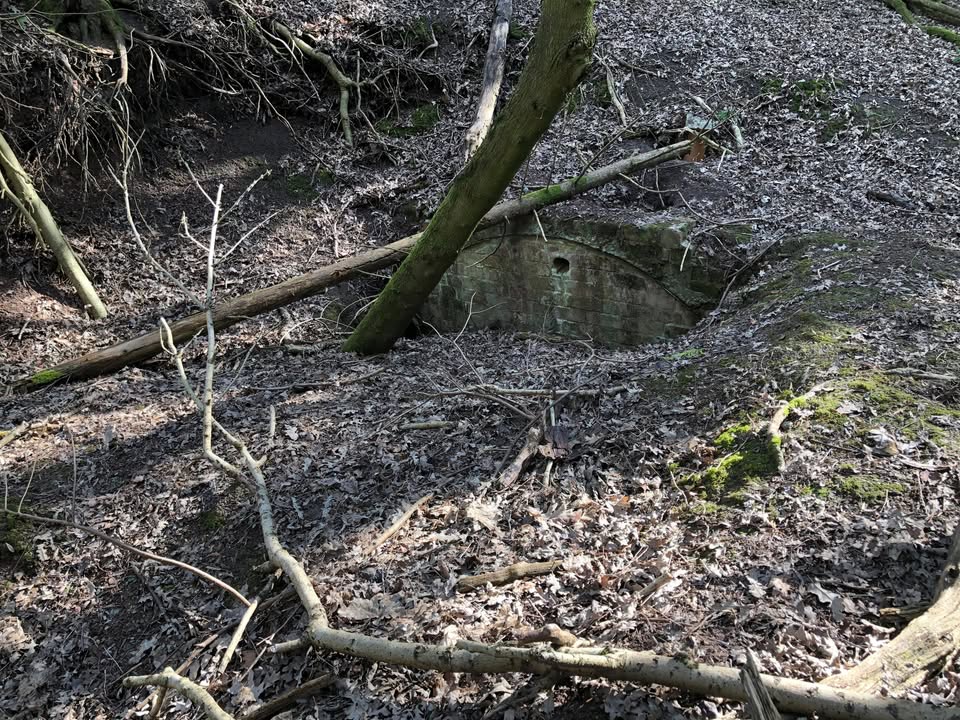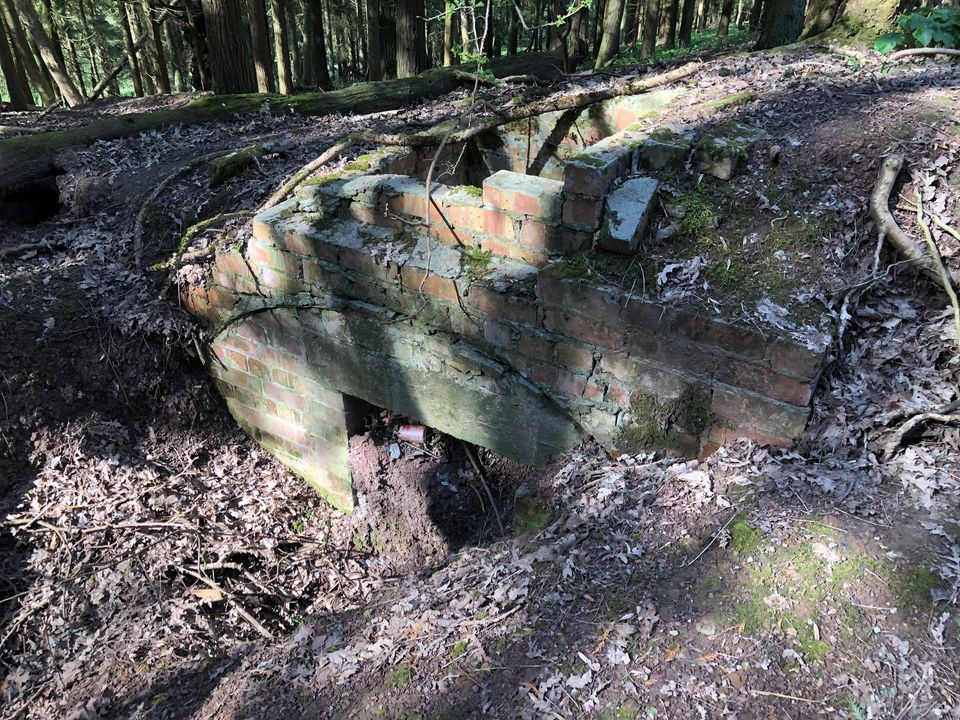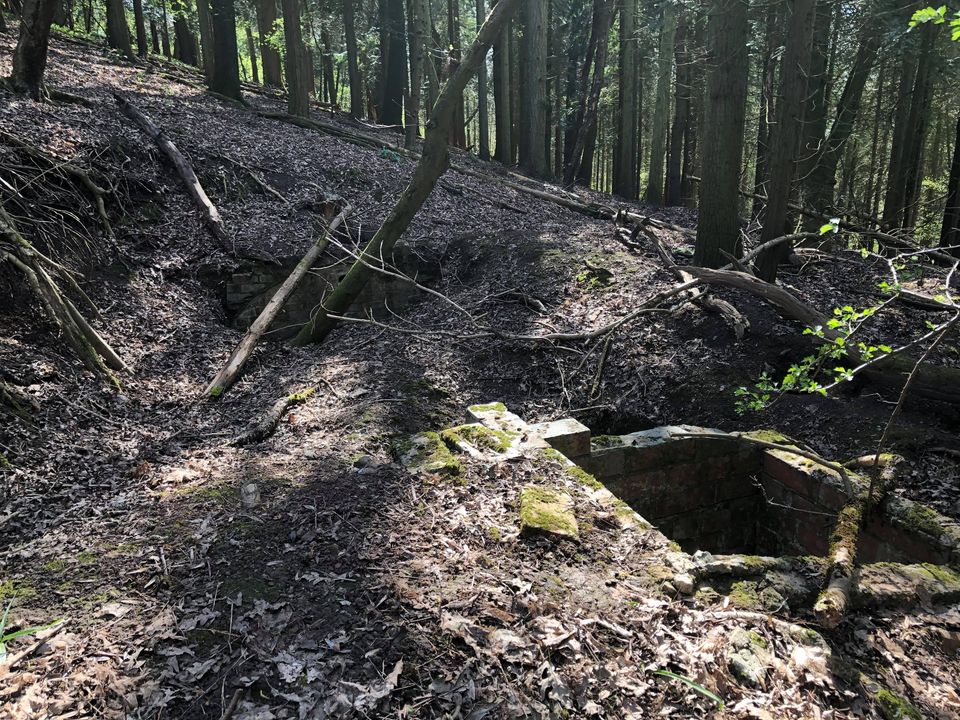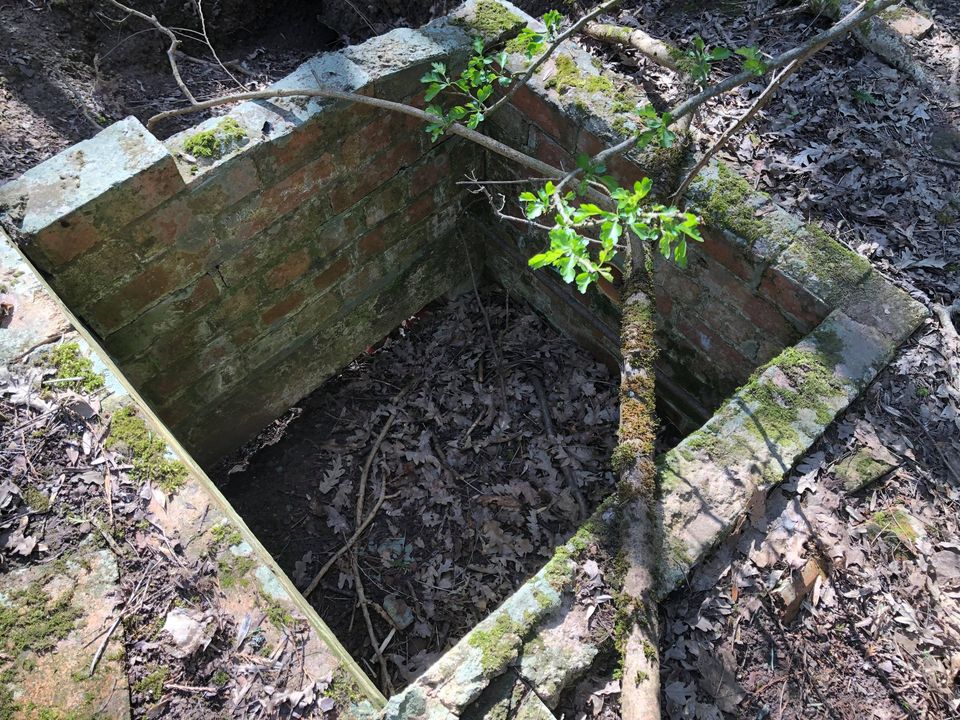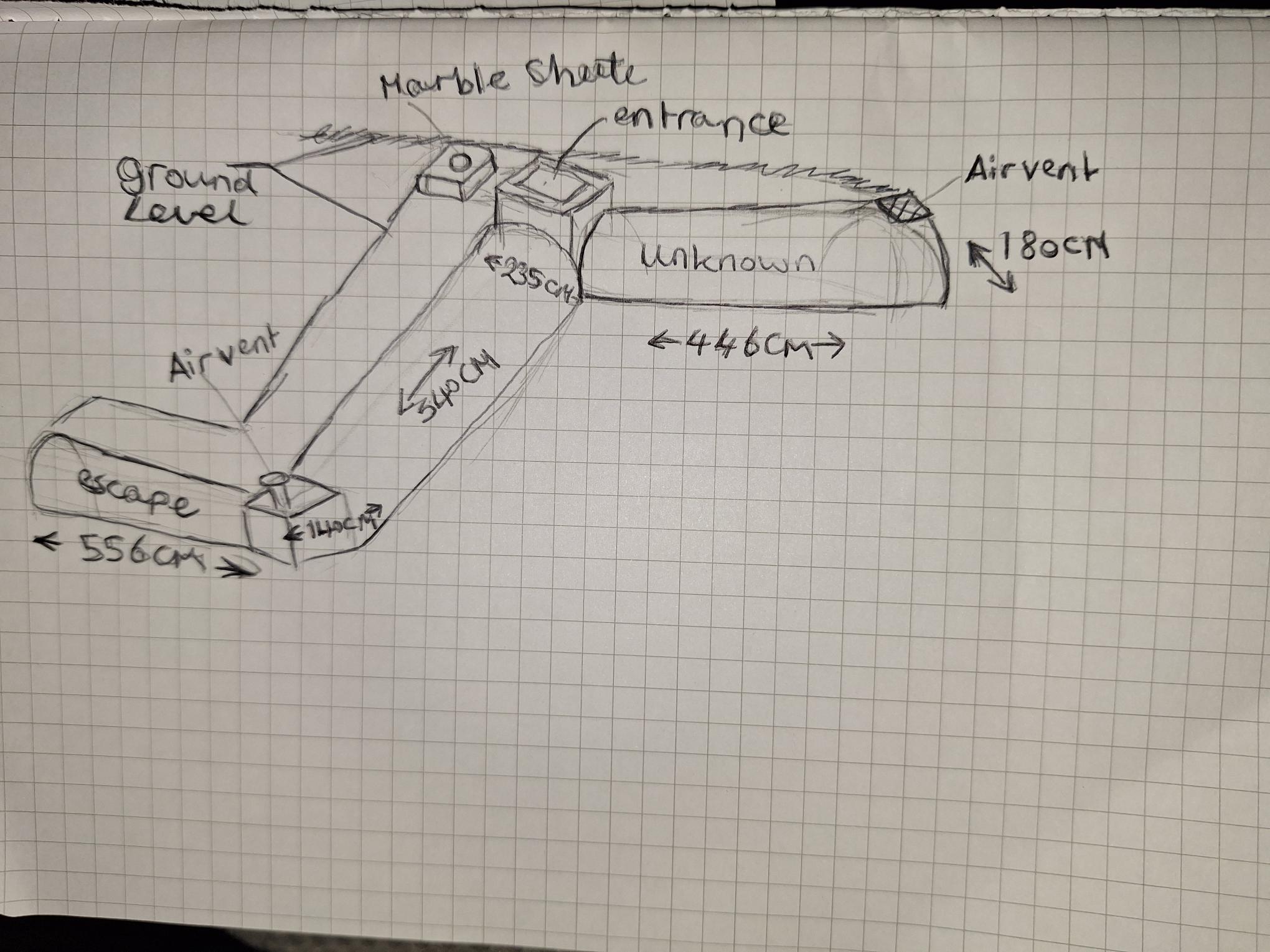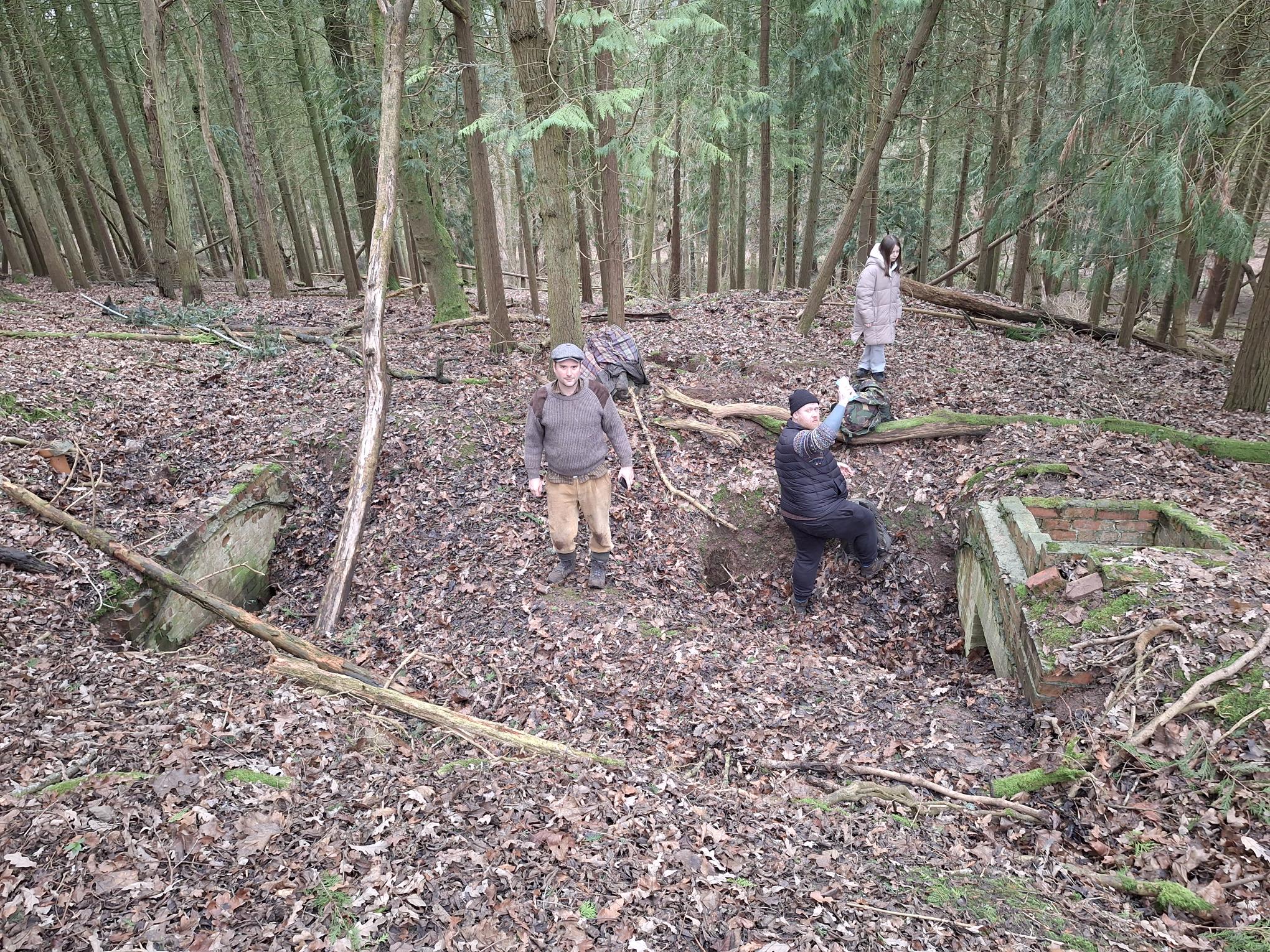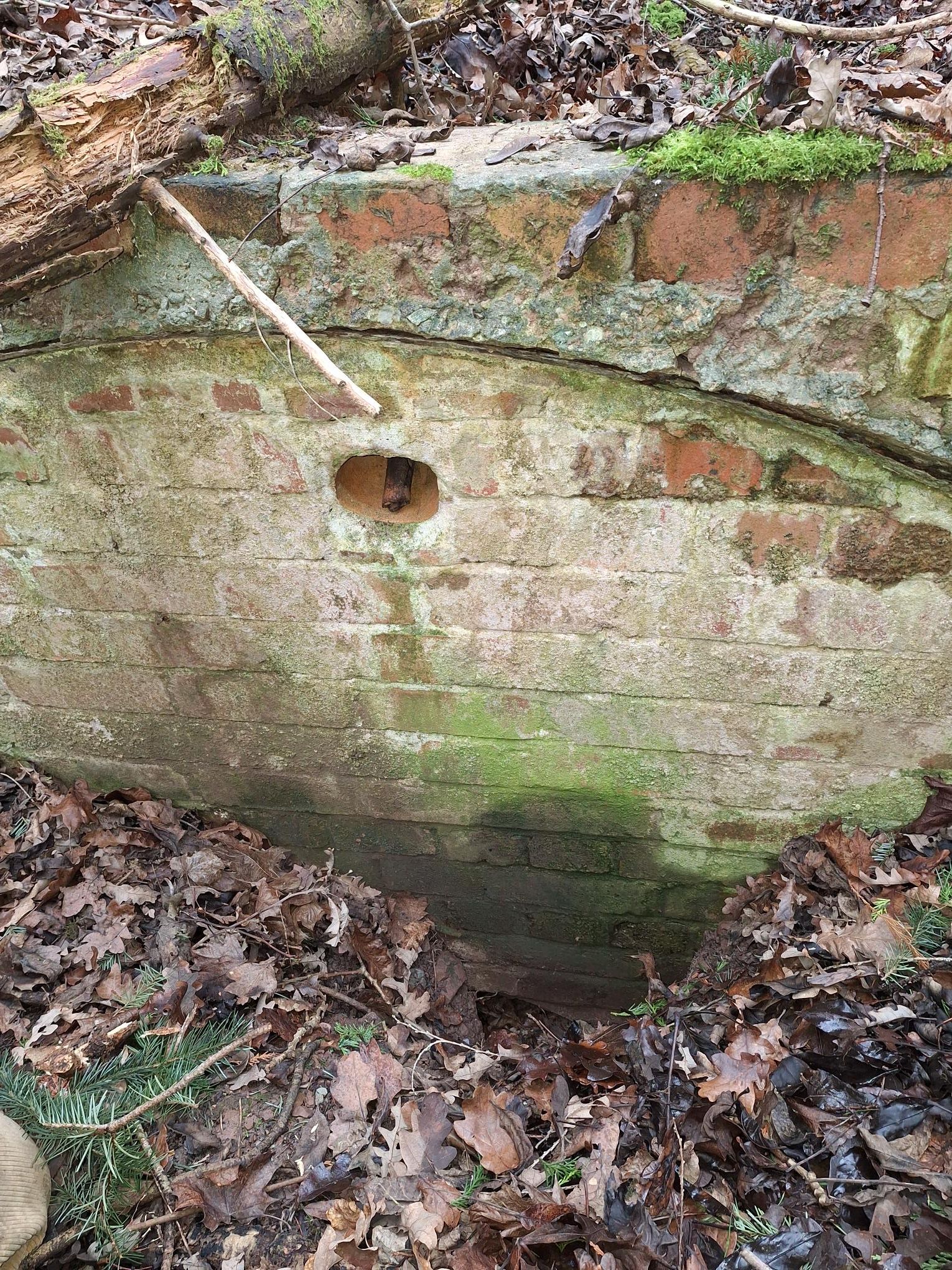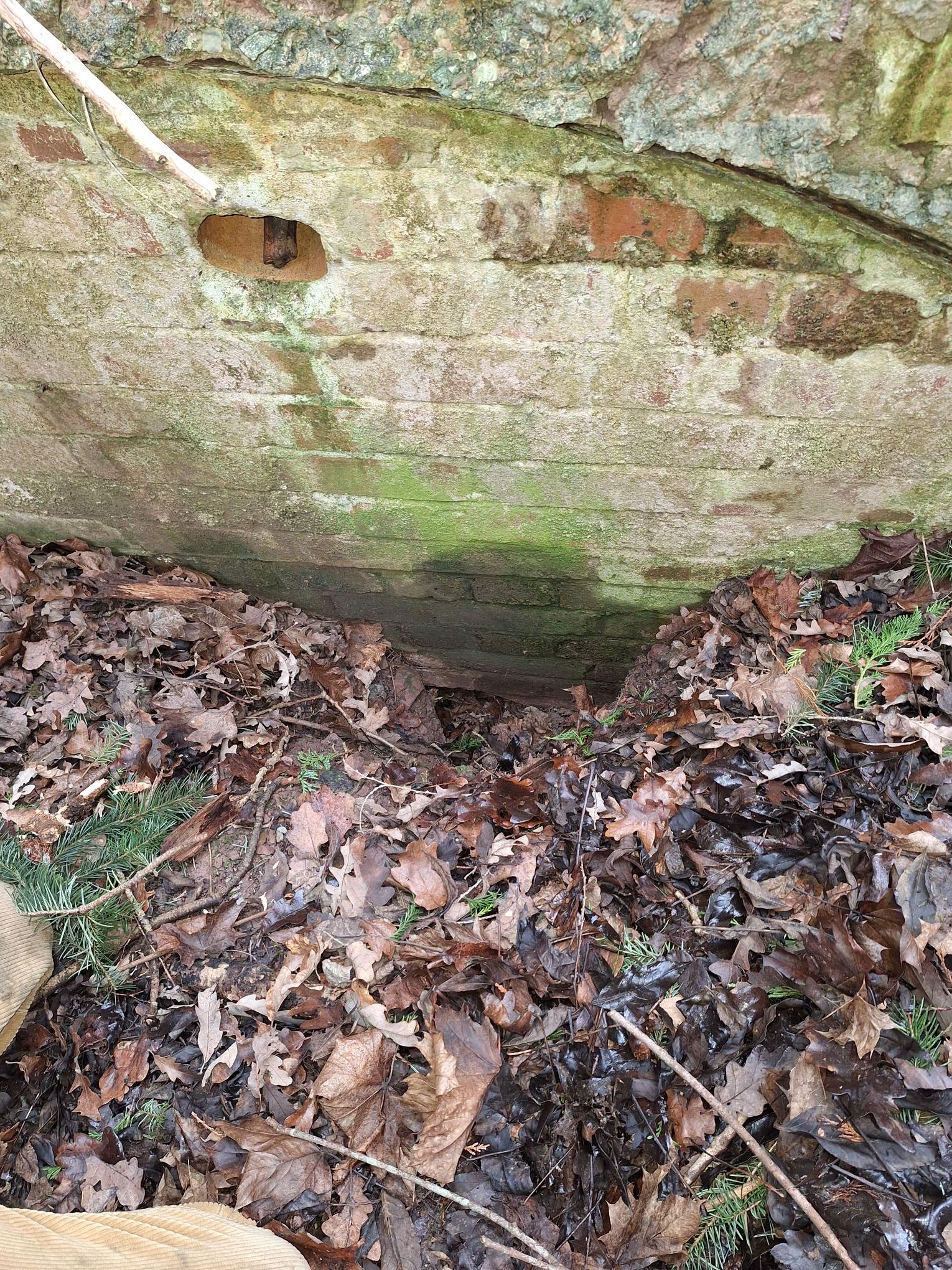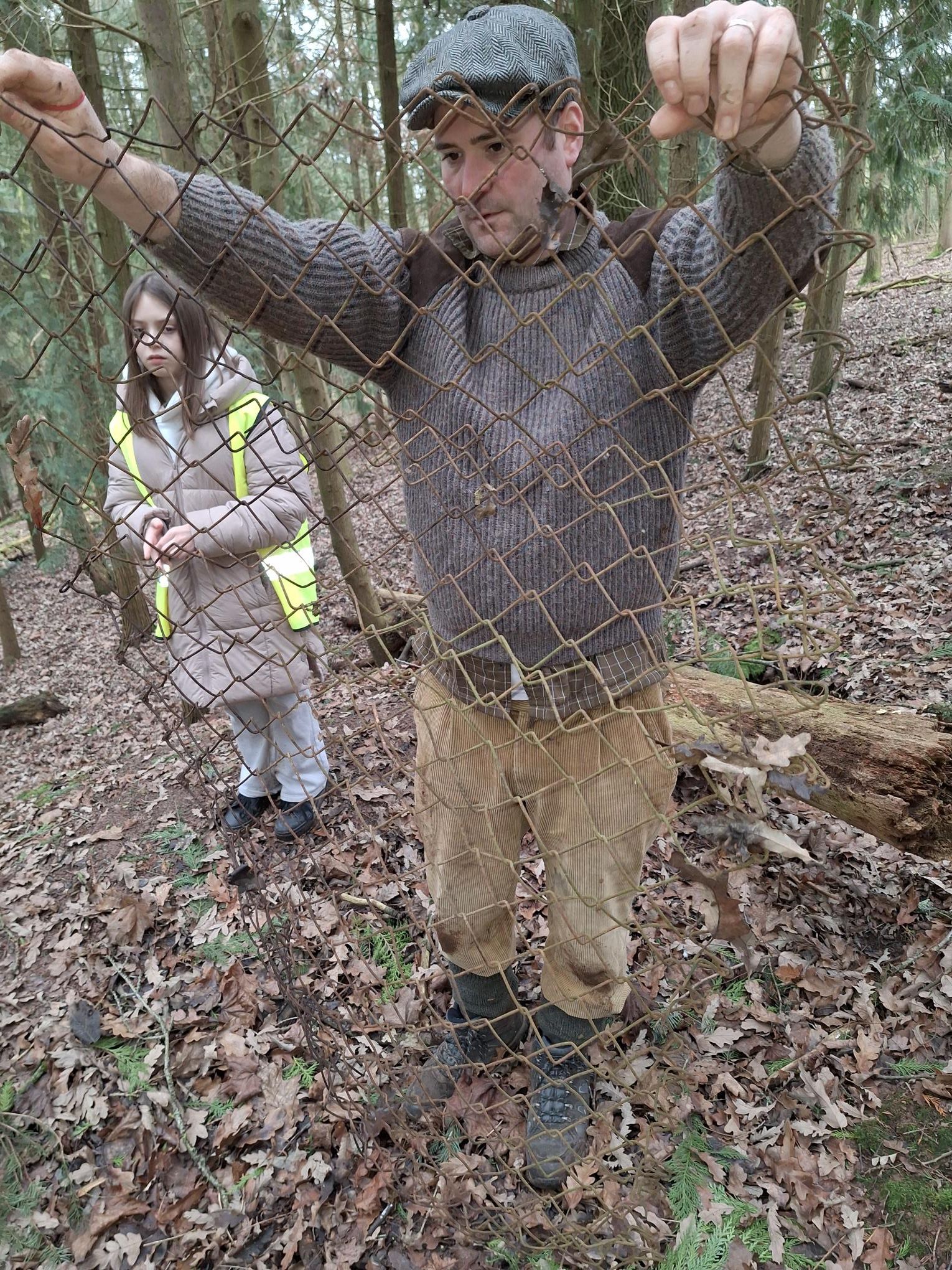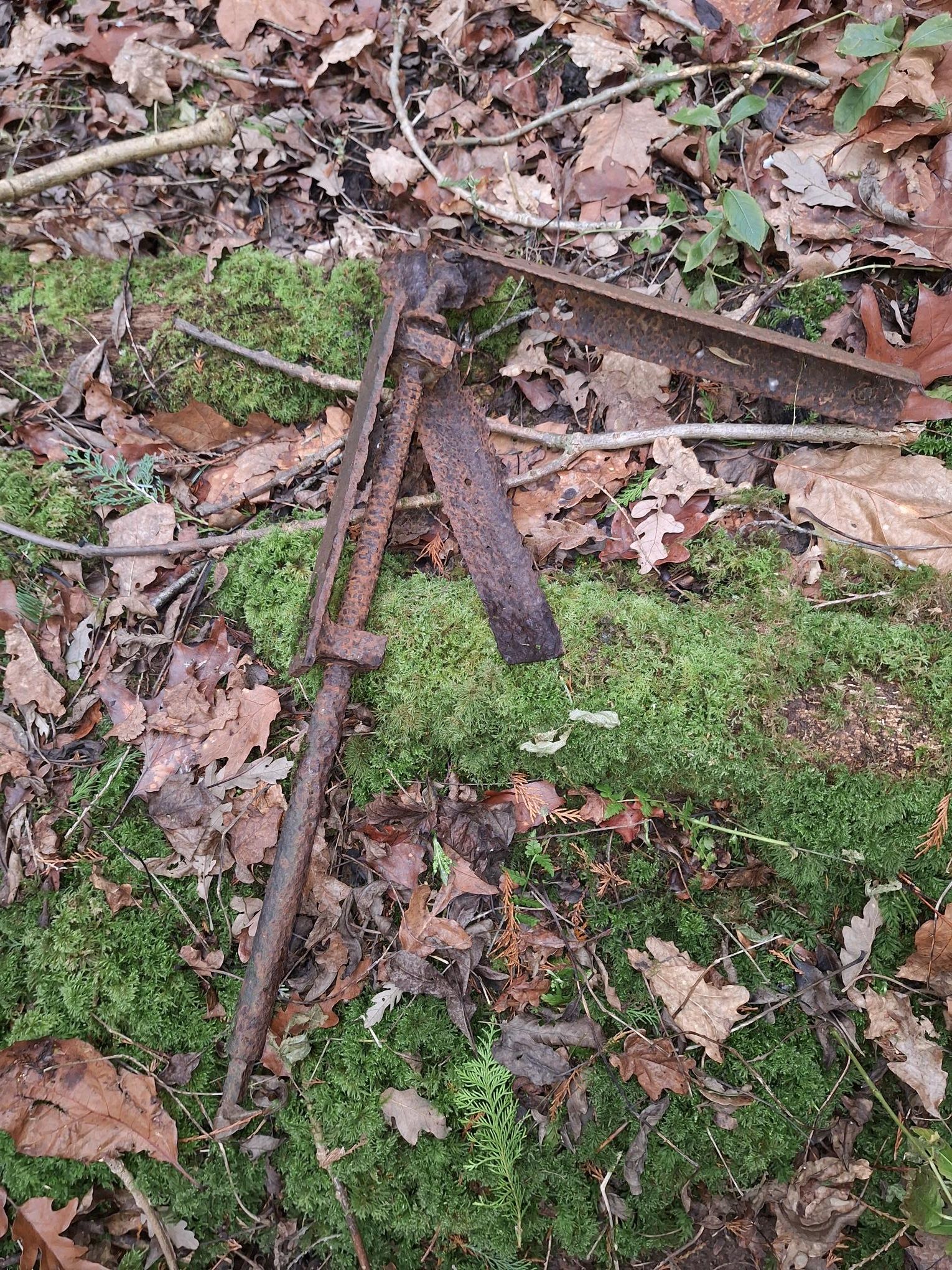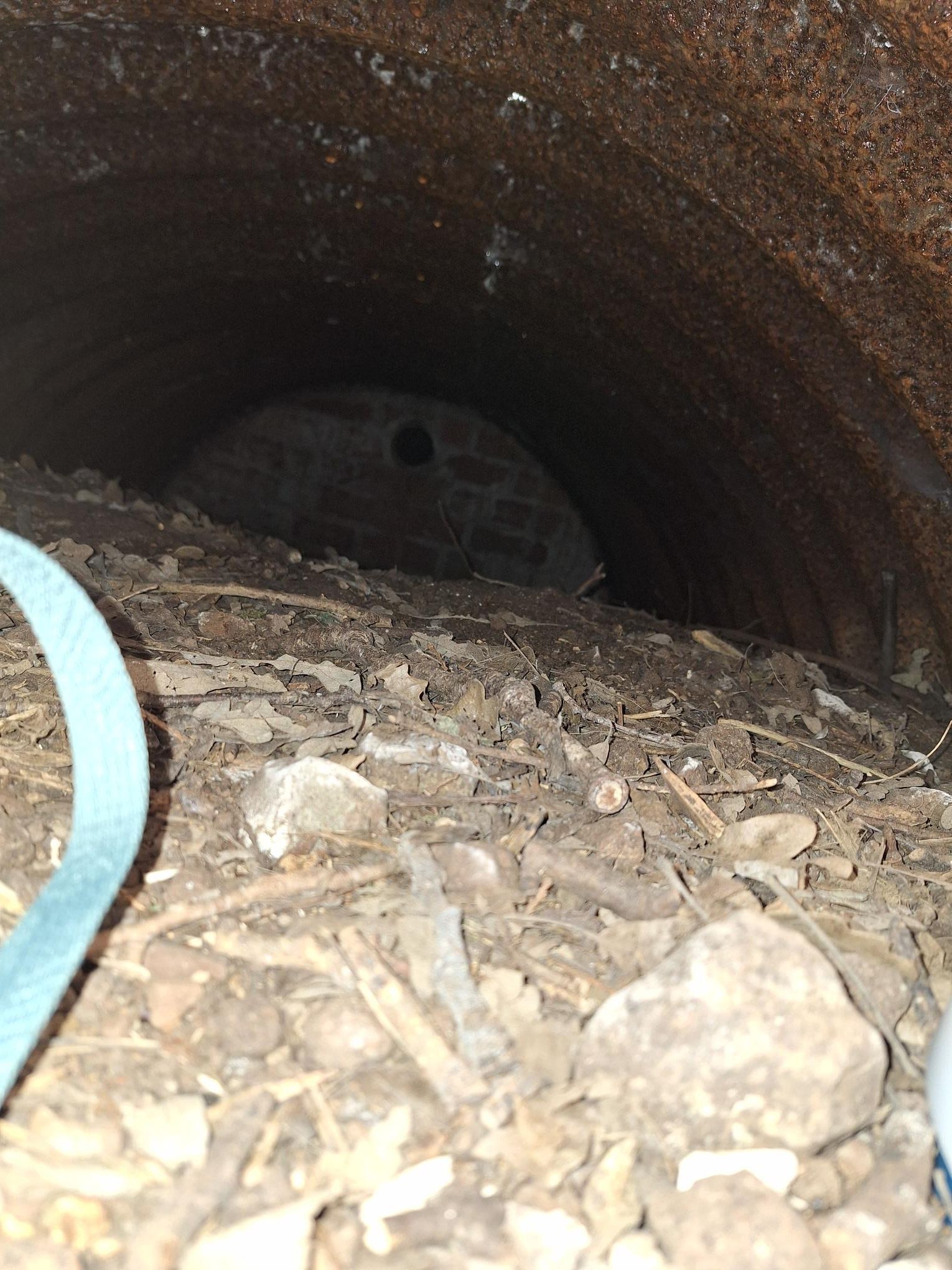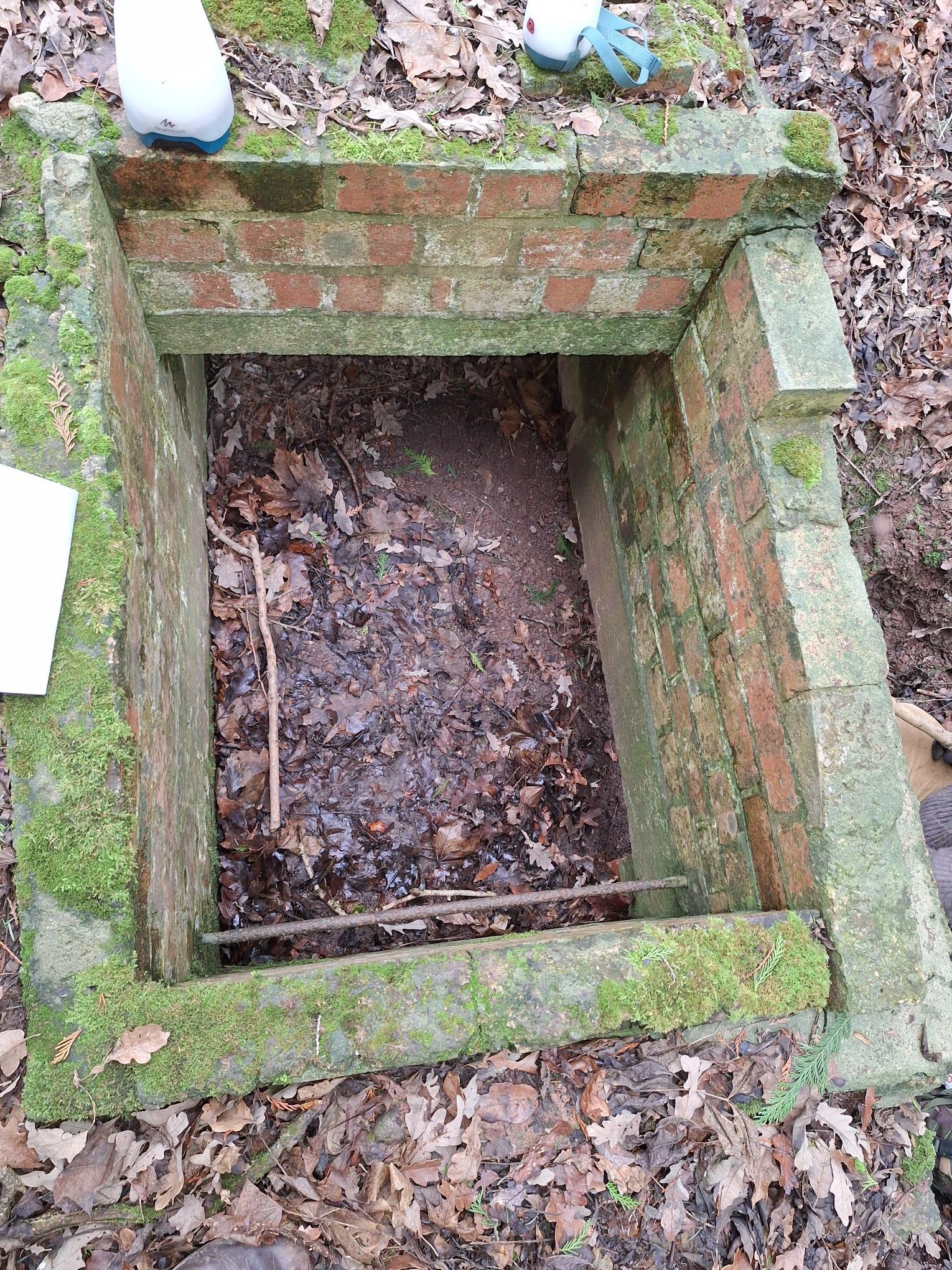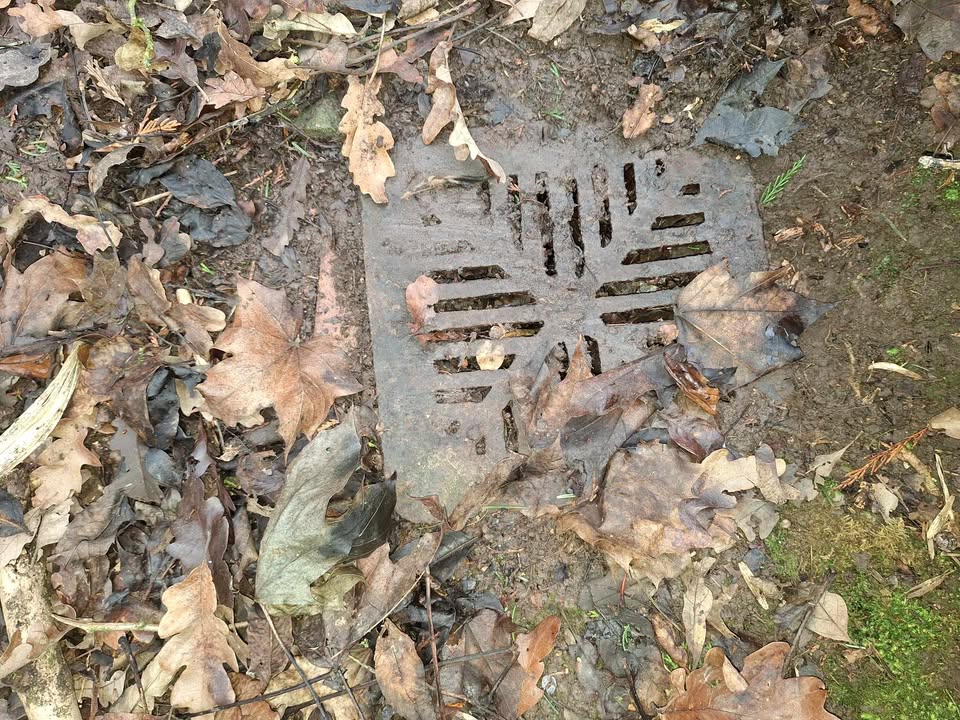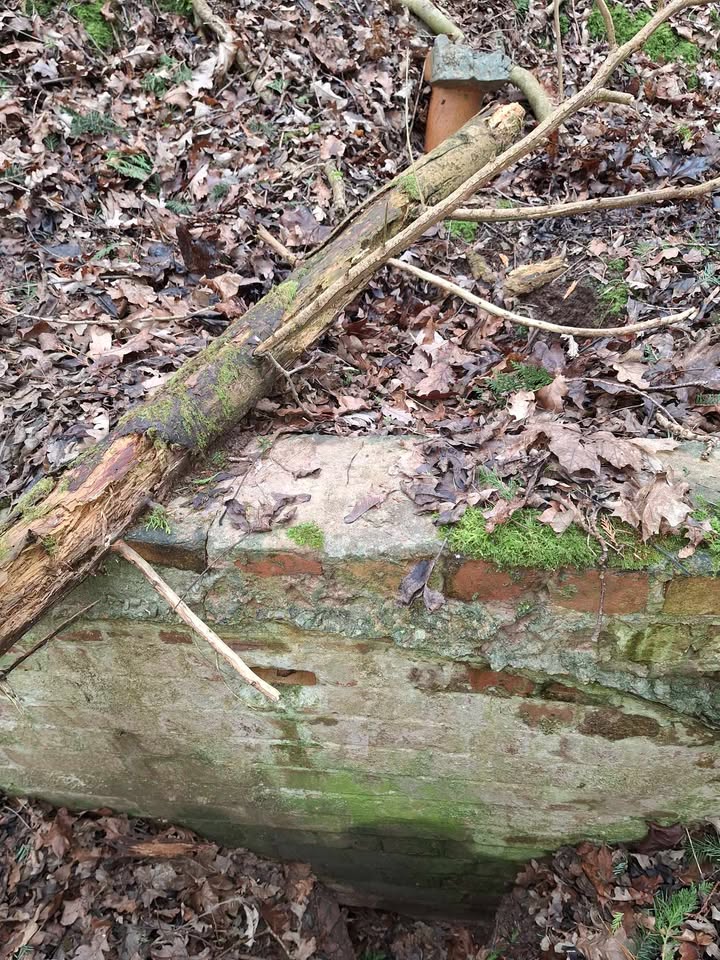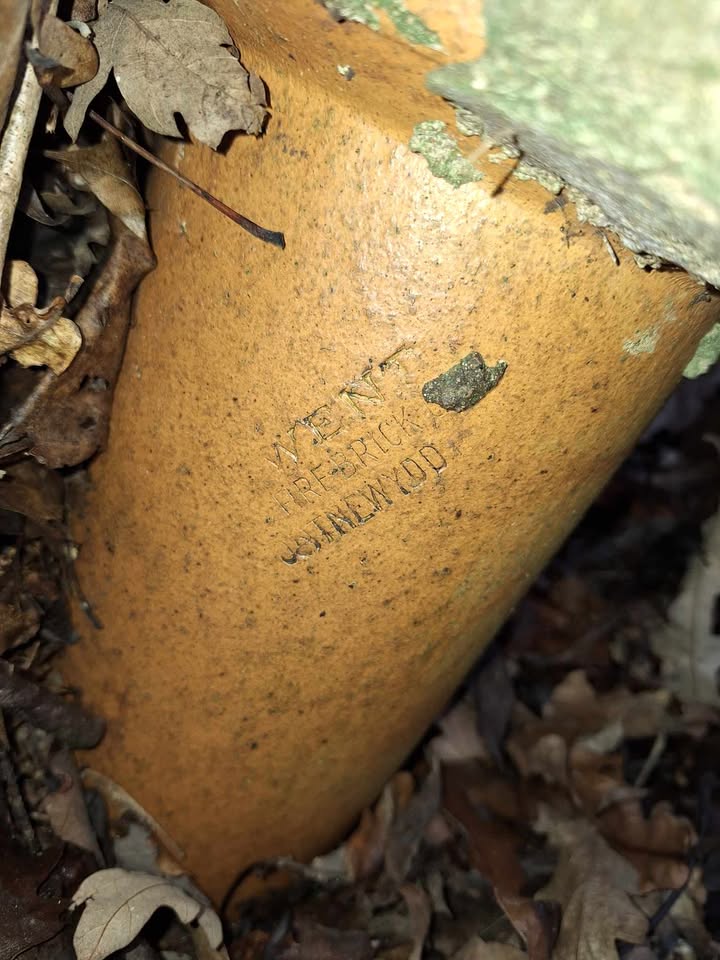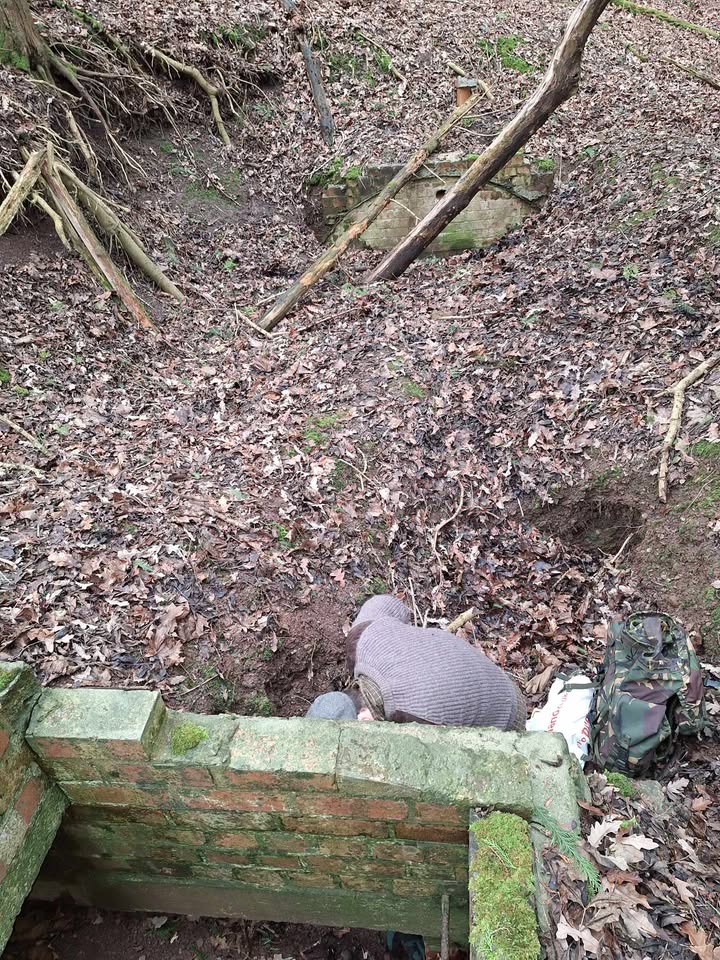Crowle is a village 4 miles east of the City of Worcester.
| Name | Occupation | Posted from | Until |
|---|---|---|---|
| Second Lieutenant Roger George Smith | Farmer |
Unknown | Unknown |
| Sergeant John Wythes | Farmer |
Unknown | 03 Dec 1944 |
| Corporal John Ivor Thomas | Farmer |
Unknown | 03 Dec 1944 |
| Private Burnley John Badger | Highways foreman |
Unknown | 03 Dec 1944 |
| Private John Edward Hartwright | Agricultural salesman |
Unknown | 03 Dec 1944 |
| Private Albert James Holt | Gardener |
Unknown | 03 Dec 1944 |
| Private Noel Herbert Huband | Agricultural mechanic |
Unknown | 03 Dec 1944 |
The Patrol had two OBs.
The first was east of Crowle Village in woodland, owned at the time by the Croome Estate, over looking Upton Snodsbury. This OB was built by the Royal Engineers but was abandoned as it flooded.
It was replaced by another structure built in woods owned by Captain Castle on north-west side of the village. This site provided good views of flat lands between Crowle and Worcester towards Droitwich. Little remains of the first OB but the second is more complete although it has collapsed. The concrete pipe escape tunnel is still apparent and is now used by badgers as a set.
In 2025 Dean Millard discovered a previously unrecorded chamber that is nearly as big as the main chamber. This unknown chamber is in relatively good condition and still intact albeit not accessible; an endoscope camera was used to photograph. He also found remnants of a bed, and what is believed to be a hatch mechanism and a possible marble chute directly adjacent to the entrance using a ceramic drainage pipe leading into the entrance. This may have been used as a form of entrance request, a form of doorbell!
The OB had a telephone which was connected to another handset in a hidden observation post set in a large tree some distance away. Apparently these telephones were also connected to a line back to the village, presumably to Lieutenant Roger Smith. It is thought the primary purpose was to alert the OB of approaching enemy patrols to enable escape.
Lighting was provided by a hurricane lamp and Sergeant John Wythes remembered that they were careful when cooking food to avoid fumes issuing from the OB.
Auxilier Jim Holt confirmed that, like elsewhere, their former colleagues in the Home Guard became their rivals but apparently did not find out what the Patrol were up to or that they had their OB nearby.
Jim remembered staying in this OB for weekends, using the vertical shaft for access. The emergency exit tunnel was apparently never used, even for practice, and was blocked off with a wooden door, although it could have been opened in an emergency. He remembered there being a stock of food and drink at the OB, the former being mainly tinned-stuff, and a sealed gallon jar of rum. This was apparently opened by the Crowle Patrol when they were stood down and was found to be empty, even though the seal was intact !
Crowle Patrol
The main approach road to Worcester from the east, the A422 and the north to south railway line from Birmingham to Cheltenham would have been busy transport links for an invading force.
The nearby Spetchley Court could also have been used as a command post.
Local training took place at Commandry Farm, the home of Group Commander 2nd Lieutenant Roger Smith.
Jim Holt recalled the Patrol going to Coleshill for their initial training and later for competitions. One of the trips he remembered was conducted in winter and their objective was a lorry, parked inside a high wall at Coleshill, where they were to place magnets. They had previously been warned to take white overalls by Group Commander 2nd Lieutenant Roger Smith, because snow was on the ground at the time.
The Patrol were told of their objective and allowed to recce the approach to it during the day. He recalled that during the night approach, one member of the Patrol managed to evade the guards and reach the objective by crawling along the top of the wall, but Jim, who was hiding in the ruts of a cart track, was actually trodden on by a guard and "captured". Since Jim managed to be caught, the Patrol came second in the contest, but for that they would have won. Joshua Patrol reached the finals in the overall contest.
The OB was apparently too damp to store munitions.
The arms, ammunition and explosives were stored in the Fruit Room, at Froxmere Court, which was kept padlocked and seldom visited. This room was reached through the garden tool store attached to and at the east end of Froxmere Court Cottage where Jim Holt and his wife lived.
Jim also had the use of the Patrol's silenced .22 rifle and often used it on the estate. On other occasions it was used by the whole Patrol for target practice. Jim became very proficient with this weapon and had reached the finals of a national shooting competition when the Auxiliaries were stood down and the contest was cancelled.
Other weapons he remembered each of the Patrol members having were the Fairbairn Sykes fighting knife, which was worn inside their trouser leg and the Smith and Wesson .38 revolver. There was also a Thompson sub machine gun which was later replaced by a Sten gun.
Group Commander 2nd Lieutenant Roger Smith apparently had a smaller revolver than the rest of this Patrol, probably a .32, and Jim remembered him almost shooting himself in the leg with his own pistol on one occasion. The Patrol were on an exercise and Smith was fingering his revolver, which was still holstered and strapped to his belt, when it went off. The bullet missed the side of his leg by a fraction and went into the ground by his foot !
The arms ammunition and explosives were collected at the end of the war by a regular army officer and Corporal and when the store was opened up much of the equipment had deteriorated due to damp and had to be destroyed, including some of the weapons, which had badly rusted.
The Patrol were discovered while on a training exercise by a person who used to live close by and was out looking for his pigs in the wood that night. The Patrol had just set a number of trip wires with explosives when the man appeared. He was intermediately sworn to secrecy and told that if there was an invasion he would have to join them in their OB. Jim Holt was well aware that this was a kinder approach than some Patrols would have adopted.
The Patrol's HQ was Group Commander Roger Smith's house at Commandry Farm or Area Commander Lieutenant Lewis van Moppes home Wolverton Hall.
Jim Holt remembered the Patrol had the biblical code name "Joshua".
To provide some sort of cover for their Patrol and make themselves appear as ordinary as possible to the locals, the Auxiliaries attended the same church parades and other events as the Home Guard.
One of the problems Jim had was thinking of excuses to give to his wife when he had to go off with his Patrol for exercises or training. He felt very sorry for her because their cottage was located close to a wood and being alone, with two young children, sometimes for days on end, she would become frightened. There was little he could do about it, except be concerned.
Joshua Patrol spent a week on the Isle of Wight at about the time of D-Day, guarding an ammunition store.
TNA ref WO199/3389
Hancock data held at B.R.A
Interview with James Holt & John Wythes by Mick Wilkes in 2000.
The Mercian Maquis by Bernard Lowry & Mick Wilks.
Photos from Steven Davies (2021) and Dean Millard and team (2025)
